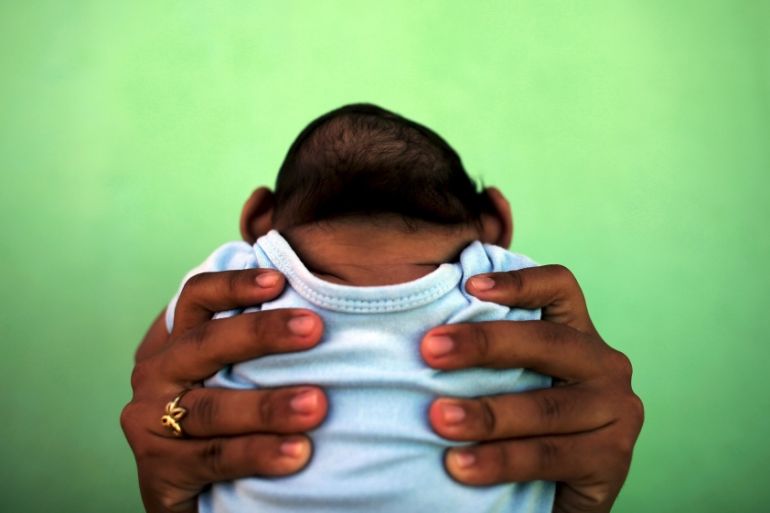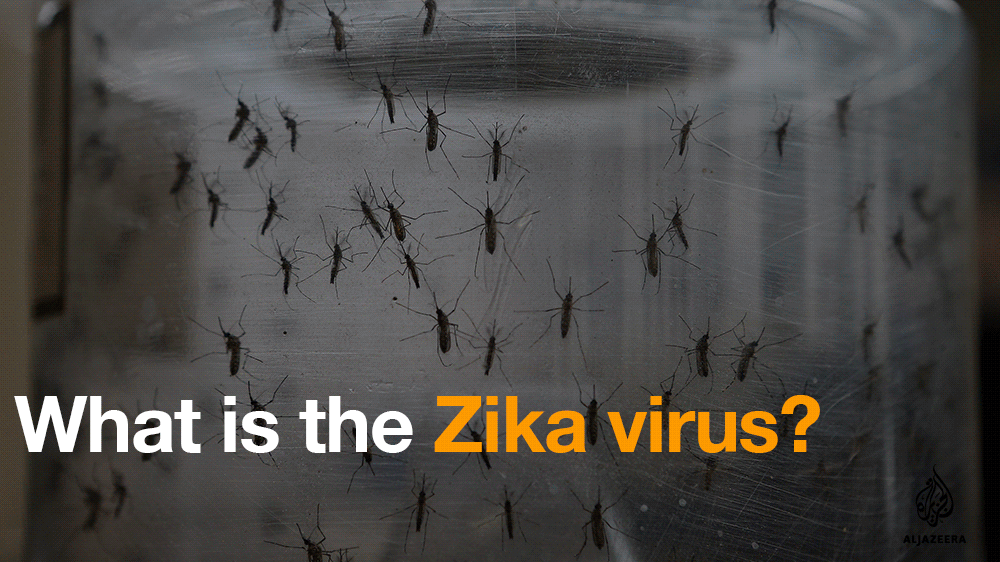Sexual transmission of Zika ‘more common than thought’
Statement by WHO comes amid “increasing evidence” virus to blame for surge in birth defects and neurological problems.

Sexual transmission of the Zika virus is more common than previously thought and there is increasing evidence that a surge in birth defects and neurological problems has been caused by Zika, according to the World Health Organization.
When the WHO declared the outbreak in the Americas to be a global emergency last month, it said that the evidence that Zika, which is mostly spread by mosquito bites, was responsible was only circumstantial.
After a meeting of its emergency committee on Tuesday, Margaret Chan, WHO director-general, said “reports and investigations in several countries strongly suggest that sexual transmission of the virus is more common than previously assumed”.
READ MORE: Zika virus facts you need to know
The US is investigating more than a dozen possible cases of Zika in people who may have been infected through sex.
Chan also said nine countries have now reported increasing cases of Guillain-Barre syndrome, a rare condition that can cause temporary paralysis and death.
She said that problems linked to Zika are now being seen not just in women of child-bearing age, but also in children, teenagers and older adults.

Zika is also now spreading to new countries, WHO said.
It noted local transmission has now been reported in 31 countries across Latin America and the Caribbean.
“All of this news is alarming,” she said.
Despite the lack of definitive evidence proving that Zika causes birth defects and neurological problems, Chan said officials should not wait for definitive scientific proof before making recommendations.
WHO’s emergency committee has called for “intensified” research into the relationship between new clusters of babies born with abnormally small heads and other neurological disorders.
WATCH: Fighting Zika in Brazil
It says particular attention should be given to studying the genetics of the different Zika virus strains and establishing studies to determine if there is a causal relationship.
So far, cases of babies born with small, deformed heads linked to Zika have only been confirmed in Brazil and French Polynesia, though officials say they expect reports from other countries once the virus has been circulating there long enough to affect pregnant women.
Colombia has reported several suspected cases of microcephaly.
WHO recommends pregnant women avoid travel to areas with ongoing Zika outbreaks and that if their partners travel to affected countries, they should practice safe sex or abstain from sex for the duration of their pregnancy.